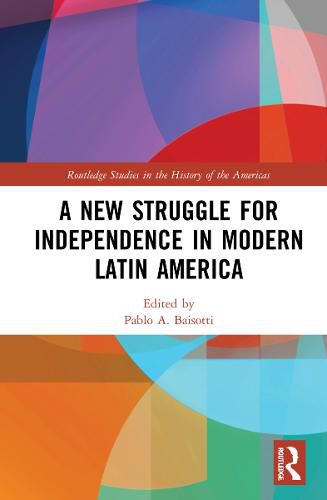Readings Newsletter
Become a Readings Member to make your shopping experience even easier.
Sign in or sign up for free!
You’re not far away from qualifying for FREE standard shipping within Australia
You’ve qualified for FREE standard shipping within Australia
The cart is loading…






This volume explores several notable themes related to foreign affairs in Latin America and the reconfiguration of the power of the different states in the region. It offers insightful historical perspectives for understanding national, regional and global issues from the beginning of the 20th century to the present day, from analysis of the traditional "hegemony" of the United States over Latin America through its military, and political influence due to the presence of the European Union, Russia, and China. These views cannot be reduced to a simplistic vision of the dominant and subordinate; rather, they attempt to seek lines of continuity by highlighting traditional interpretations of new scenarios such as regional trading and security blocs. The volume refuses to impose a traditional and uncritical linear historical narrative onto the reader but instead proposes an alternative interpretation of the past and its relation to the present. Finally, the growing importance of international mechanisms in enabling the success of certain Latin American regimes is also highlighted, in particular the influence of regional diffusion through international organizations or other networks.
$9.00 standard shipping within Australia
FREE standard shipping within Australia for orders over $100.00
Express & International shipping calculated at checkout
This volume explores several notable themes related to foreign affairs in Latin America and the reconfiguration of the power of the different states in the region. It offers insightful historical perspectives for understanding national, regional and global issues from the beginning of the 20th century to the present day, from analysis of the traditional "hegemony" of the United States over Latin America through its military, and political influence due to the presence of the European Union, Russia, and China. These views cannot be reduced to a simplistic vision of the dominant and subordinate; rather, they attempt to seek lines of continuity by highlighting traditional interpretations of new scenarios such as regional trading and security blocs. The volume refuses to impose a traditional and uncritical linear historical narrative onto the reader but instead proposes an alternative interpretation of the past and its relation to the present. Finally, the growing importance of international mechanisms in enabling the success of certain Latin American regimes is also highlighted, in particular the influence of regional diffusion through international organizations or other networks.